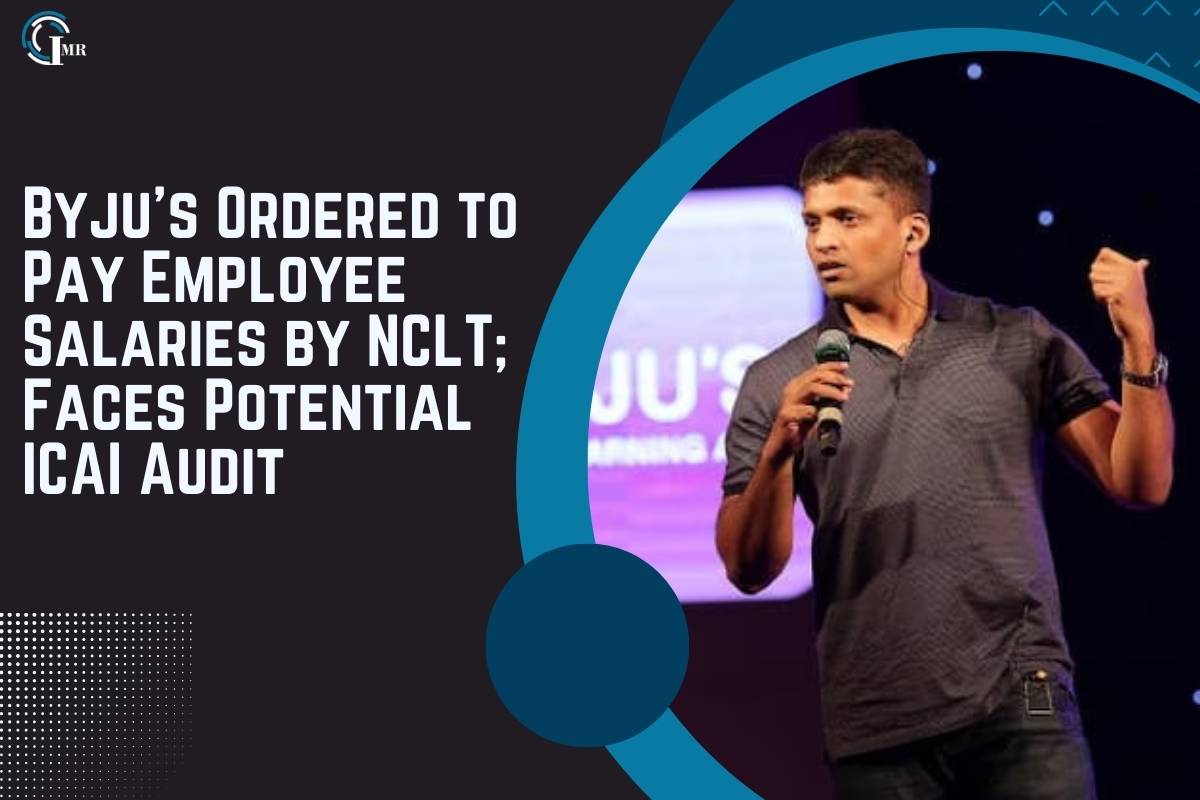Byju’s Ordered To Pay Employee Salaries By NCLT; Faces Potential ICAI Audit

(Source – Moneycontrol)
In a recent hearing, the National Company Law Tribunal (NCLT) has mandated edtech giant Byju’s to ensure the payment of employee salaries. The tribunal emphasized that the company’s operational status should mean it has the revenue necessary to meet its payroll obligations. This directive comes in response to a plea from Byju’s employees seeking overdue salary payments.
Tribunal’s Stance on Salaries Payments
The NCLT’s Bengaluru bench highlighted that Byju’s, as an active company, should possess sufficient revenue streams to cover employee salaries, irrespective of any funds raised through its recent rights issue. “You are a company that is functioning. Surely you should be having revenues,” the tribunal stated, underscoring the expectation that an operational business should be able to meet its financial responsibilities to its staff.
Warning of Potential Audit and Employee Plea
The tribunal further cautioned Byju’s that failure to comply with the salary payments could trigger an audit by the Institute of Chartered Accountants of India (ICAI). This audit would scrutinize the company’s finances to determine the reasons behind the delayed payments. The possibility of such an audit indicates the tribunal’s serious stance on ensuring employee welfare and financial transparency.
Byju’s has been directed to file a response to the employees’ application promptly. The tribunal has scheduled a follow-up hearing for the coming week to review the company’s compliance with the order and to decide on further actions if necessary.
The plea by Byju’s employee’s highlights growing concerns over delayed salary payments, which have affected their financial stability. The tribunal’s decision provides a glimmer of hope for the employees, ensuring their grievances are addressed by a higher authority.
Implications for Byju’s
This development places significant pressure on Byju’s to prioritize its payroll commitments and maintain its reputation amidst financial scrutiny. The potential for an ICAI audit further emphasizes the need for the company to manage its finances diligently and transparently. Byju’s, which has been a prominent player in the edtech sector, now faces a critical juncture in balancing its financial obligations with its growth ambitions. The upcoming tribunal hearing will be pivotal in determining the company’s next steps and its adherence to regulatory expectations.
In the conclusion, the NCLT’s directive to Byju’s to pay employee salaries or face an audit is a clear message about the importance of financial responsibility and employee welfare. As Byju’s prepares its response and the tribunal gears up for the next hearing, the edtech industry and stakeholders will be closely watching the developments to gauge the company’s future trajectory.




.jpg)
Comments